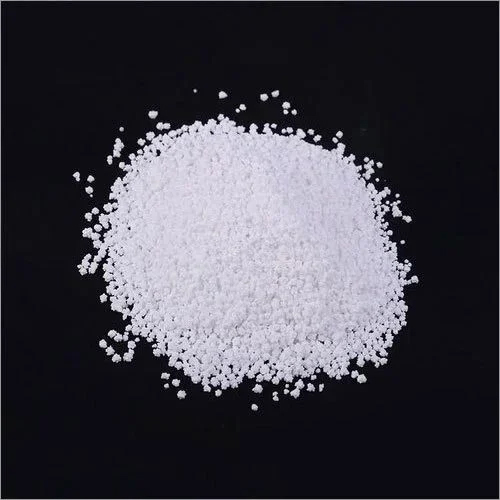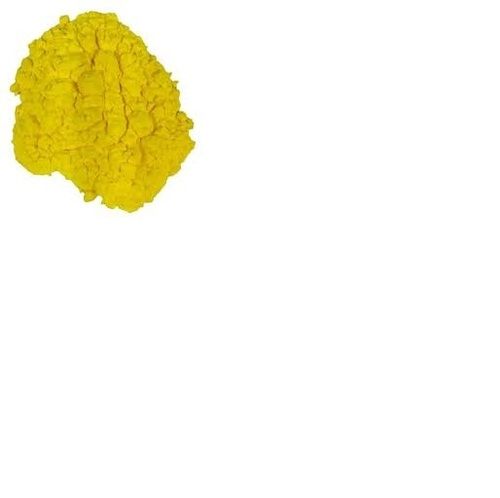Product Description
Calcium chloride granules are constituted of the chemical compound calcium chloride (CaCl2), which is made up of the ions calcium and chlorine. It is widely employed in a variety of industries and applications because it is extremely soluble in water. One calcium ion (Ca2+) and two chloride ions (Cl-) make up each calcium chloride molecule, according to the chemical formula CaCl2. Calcium chloride granules are typically colourless or white and have a crystalline appearance. They rapidly collect moisture from their surroundings because they are hygroscopic. This feature of calcium chloride, which is still present in the granular form, is that it is very soluble in water.
| CAS No |
10043-52-4 |
| Packaging Details |
50 Kg Bag |
| Grade Standard |
Industrial Grade |
| Physical form |
Granules |
Applications of Calcium Chloride Granule:
1. Deicing and Anti-icing: Calcium chloride is widely used as a deicing agent during winter months to prevent ice formation on roads, sidewalks, and parking lots. It lowers the freezing point of water, enabling the melting of ice and snow at lower temperatures. It is also used as an anti-icing agent to prevent ice from bonding to surfaces.
2. Dust Control: Calcium chloride is applied to unpaved roads, construction sites, and industrial areas to control dust emissions. The granules absorb moisture from the air and the ground, helping to suppress dust and improve air quality.
3. Food Preservation: Calcium chloride is used as a food additive in various processed foods. It helps maintain the firmness and texture of fruits and vegetables during processing and storage, preventing spoilage and enhancing shelf life.
4. Desiccant: Calcium chloride granules are used as a desiccant or moisture-absorbing agent in packaging to protect sensitive products from humidity and moisture damage.
5. Concrete Accelerator: In the construction industry, calcium chloride is added to concrete mixes to accelerate the curing process. This speeds up the setting time of concrete, allowing for faster construction and reduced project timelines.
6. Water Treatment: Calcium chloride is used in water treatment processes to control pH levels, remove impurities, and soften water by removing excess minerals.
7. Industrial Processes: Calcium chloride is utilized in various industrial processes, including oil and gas drilling operations, as a drilling fluid additive to stabilize the wellbore and control fluid loss.
8. Dehumidification: Calcium chloride granules are used in dehumidifiers to absorb excess moisture from the air in residential and commercial settings.
9. Swimming Pool Maintenance: Calcium chloride is used to increase the calcium hardness in swimming pool water, helping to prevent corrosion and extend the life of pool equipment.
10. Agricultural Applications: Calcium chloride is used in agriculture to provide calcium and chloride nutrients to plants, improve soil structure, and reduce soil salinity.
FAQ:
Q: What are calcium chloride granules?
A: Calcium chloride granules are solid, crystalline particles of calcium chloride, a chemical compound composed of calcium and chlorine. They are commonly used for various applications due to their moisture-absorbing and ice-melting properties.
Q: What is the purpose of calcium chloride granules?
A: Calcium chloride granules have several purposes, including deicing and anti-icing roads and sidewalks during winter, controlling dust on unpaved roads and construction sites, preserving food by maintaining texture and shelf life, and acting as a desiccant to absorb moisture in packaging.
Q: How do calcium chloride granules work as a deicer?
A: Calcium chloride lowers the freezing point of water, causing ice and snow to melt even at lower temperatures. When applied to icy surfaces, it attracts moisture from the air and the surface, forming a liquid brine that breaks down the ice.
Q: Are calcium chloride granules safe to use?
A: Calcium chloride granules are generally safe to use when handled properly. However, they can be corrosive and may cause irritation if they come into contact with the skin or eyes. It is essential to follow safety guidelines and wear appropriate protective gear when handling calcium chloride granules.
Q: Can calcium chloride granules be used in food?
A: Yes, calcium chloride is used as a food additive and is generally recognized as safe (GRAS) by regulatory agencies when used within prescribed limits. It is commonly used in processed foods to maintain texture and prevent spoilage.
Q: How are calcium chloride granules applied for dust control?
A: To control dust, calcium chloride granules are typically spread on unpaved roads, construction sites, or other dusty surfaces. When the granules absorb moisture from the air, they create a surface crust that binds the dust particles, reducing their dispersion.
Q: Can calcium chloride granules be used in swimming pools?
A: Yes, calcium chloride can be used in swimming pools to increase calcium hardness and prevent corrosion. However, it should be added with caution and in appropriate quantities to avoid over-hardening the water.
Q: Are there any environmental concerns with using calcium chloride granules?
A: Calcium chloride is considered a relatively safe deicer compared to alternatives like sodium chloride (rock salt). However, excessive use of any deicer can contribute to environmental concerns, such as soil and water contamination. It's essential to use calcium chloride granules responsibly and follow recommended application rates.
Q: Can calcium chloride granules be reused or recycled?
A: Calcium chloride granules that have absorbed moisture can often be dried and reused, particularly in certain applications. However, for deicing purposes, the granules may not be as effective after use and are typically discarded.
Q: Where can I purchase calcium chloride granules?
A: Calcium chloride granules are commonly available at hardware stores, home improvement centers, and online retailers. They may be sold specifically for deicing, dust control, or other specific applications. Always check the product label and description to ensure you're getting the right type for your intended use.










